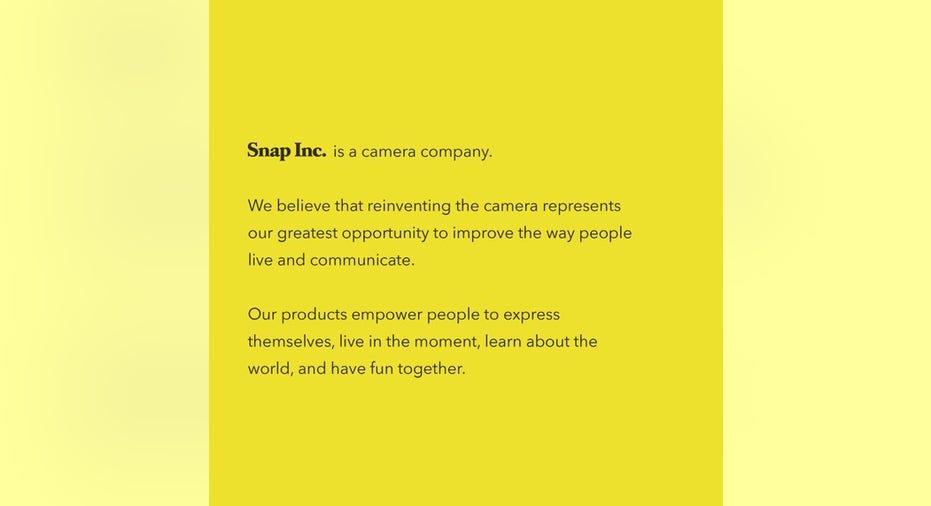1 Way Snap, Inc. Is More Like Facebook Than Twitter

Overall, I think Snap (NYSE: SNAP) will much more closely resemble Twitter (NYSE: TWTR) than Facebook (NASDAQ: FB), at least on most of the pertinent financial and operating metrics that investors evaluate. There is, however, one notable way that Snap is more like Facebook: voting.
There's been an annoying trend that's developed over the past two decades, most often found in Silicon Valley tech start-ups. In an effort to retain voting control, many start-ups establish dual share classes that preserve voting power for founders. The most prominent early example is a certain search giant, but there is no shortage of others. Expectedly, Snap similarly adopted multiple share classes for precisely this reason -- just like Facebook.
Who's the boss?
Any prospective investors considering buying shares of Snap once it goes public should accept that they will have quite literally no say in how the company is run or any other pertinent decisions that are typically put to shareholder votes. Snap has three share classes, and the Class A shares that will be sold to the public get exactly zero votes.
Data source: Snap S-1.
Since any Class B or Class C shares that are sold or transferred automatically convert to Class A (further concentrating voting power), public investors must have absolute faith in Spiegel and Murphy.
Image source: Snap S-1.
The same is true of Facebook, where Mark Zuckerberg rules with an iron fist thanks to his own supervoting shares. When Facebook when public in 2012, it had just two share classes, Class A and Class B. Class A shares were entitled to one vote, while Class B shares were entitled to 10. But last year Facebook created a third, non-voting Class C to further preserve his Zuckness's absolute authority even as he committed to donate 99% of his shares for philanthropic purposes. The date for the stock split has not been set yet. Public Facebook investors technically get a vote, but it's mostly an illusion of influence since Zuck Dawg personally controls 60% of all voting power, according to the company's 2016 proxy statement.
In contrast, Twitter took the high ground with corporate governance and did not go with a dual-class structure. Twitter has a single share class, and each share gets one vote. Nice and simple. All insiders collectively hold a modest 11% of voting power -- so investors' votes actually matter.
10 stocks we like better than Snap Inc.When investing geniuses David and Tom Gardner have a stock tip, it can pay to listen. After all, the newsletter they have run for over a decade, Motley Fool Stock Advisor, has tripled the market.*
David and Tom just revealed what they believe are the 10 best stocks for investors to buy right now... and Snap Inc. wasn't one of them! That's right -- they think these 10 stocks are even better buys.
Click here to learn about these picks!
*Stock Advisor returns as of February 6, 2017
Evan Niu, CFA owns shares of Facebook. The Motley Fool owns shares of and recommends Facebook and Twitter. The Motley Fool has a disclosure policy.



















